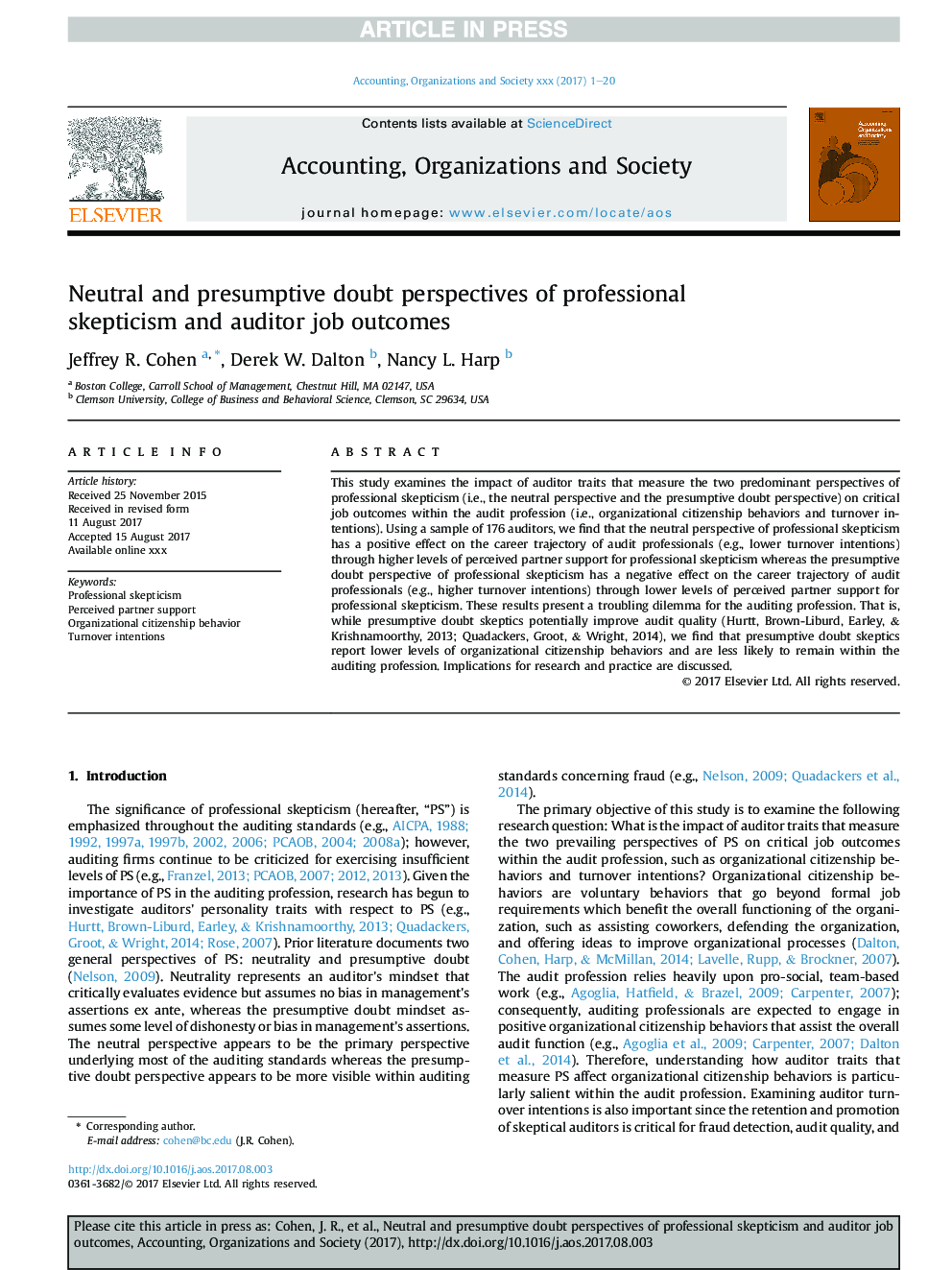| Article ID | Journal | Published Year | Pages | File Type |
|---|---|---|---|---|
| 7239530 | Accounting, Organizations and Society | 2017 | 20 Pages |
Abstract
This study examines the impact of auditor traits that measure the two predominant perspectives of professional skepticism (i.e., the neutral perspective and the presumptive doubt perspective) on critical job outcomes within the audit profession (i.e., organizational citizenship behaviors and turnover intentions). Using a sample of 176 auditors, we find that the neutral perspective of professional skepticism has a positive effect on the career trajectory of audit professionals (e.g., lower turnover intentions) through higher levels of perceived partner support for professional skepticism whereas the presumptive doubt perspective of professional skepticism has a negative effect on the career trajectory of audit professionals (e.g., higher turnover intentions) through lower levels of perceived partner support for professional skepticism. These results present a troubling dilemma for the auditing profession. That is, while presumptive doubt skeptics potentially improve audit quality (Hurtt, Brown-Liburd, Earley, & Krishnamoorthy, 2013; Quadackers, Groot, & Wright, 2014), we find that presumptive doubt skeptics report lower levels of organizational citizenship behaviors and are less likely to remain within the auditing profession. Implications for research and practice are discussed.
Related Topics
Social Sciences and Humanities
Business, Management and Accounting
Accounting
Authors
Jeffrey R. Cohen, Derek W. Dalton, Nancy L. Harp,
